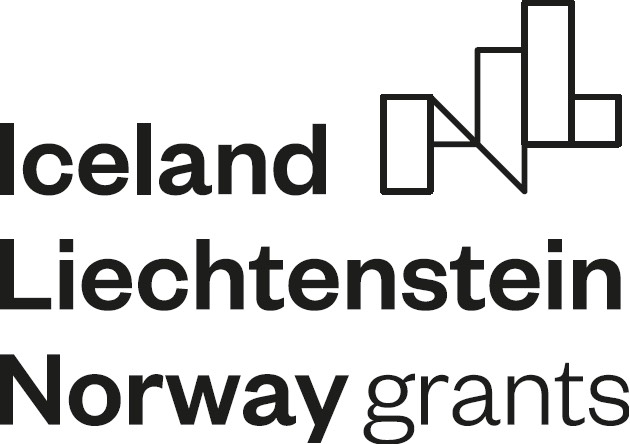27. MF Divadlo Plzeň: Up & Down (No. 20)
Congratulations to The Divadlo International Theatre Festival for their marvelous 2019 festival! The productions that I managed to see were, if not flawless (what critic would say a festival is flawless?), creative, thought-provoking and generally excellent. Here are a few shows that I attended:
Gratuluju k Mezinárodnímu divadelnímu festivalu Divadlo za jeho úžasný ročník 2019! Produkce, které se mi podařilo vidět, byly ne-li bezchybné (jaký kritik by řekl, že festival je bezchybný?), tak kreativní, myšlenkově provokující a obecně vynikající. Zde je hodnocení několika představení, která jsem navštívil:
…
Where is my Home? (A Love Letter to Czechoslovakia) / Kde domov můj? (Milostný dopis Československu)
*****
Where is my Home? is educational theater from Pilsen’s Alfa Theatre, directed by Jakub Vasicek. It uses 15 performers in live drama and monologue, songs, live video, historic video and puppetry to present the social, political and artistic history of Czechoslovakia from 1918.
It’s good to see theatre acknowledging its function to teach, this is a terrific stage lesson. The various techniques are woven together to create a single fabric. Much to its credit, the production, as straightforward as it is, is complex and demanding. At one point a family is at the dinner table when a rock singer climbs up on it to belt out a song. The family never acknowledges them, and we’re asked to receive multiple realities in one image.
The narration is objective, for the most part. But the narration of The Prague Spring adds the comment “Hope lasted only six months before being smashed.” Whether we were previously familiar with Czech history or not, by the end of Where is my Home? we would all sign a love to Czechoslovakia.
—
The Cross by the Stream / Kříž u potoka
*****
The production of The Cross by the Stream by Slovacke Theatre (Uherske Hradiste) is stunning theatre. This story of a woman who marries a man from a cursed family (cursed in the marriages) has the power of myth; it reaches a point in our collective unconscious that we hadn’t met before.
The script itself is powerful, with a dignified poetry like “I can’t love. There is no heart on me. Only a handful of ashes,” and “A grave blacker and deeper than night.”
The play introduces challenging techniques. There’s murder and suicide, but the victims nonetheless continue in the story. Dramatic action has its own rules – events on stage have their own truth. If there are passages that dwell for too long on the moment – well, this is a dramatic poem, and these are mythical moments.
The actors are superb in their roles, playing timeless characters that are at once ordinary people and mythical characters. What wonderful work from Slovacke Theatre!
—
Musical of the Third Age / Muzikál třetího věku
****
BodyVoiceBand (Prague) gives us a very fine piece of dance theatre in its study of senior citizens, Musical of the Third Age. It uses young dancers and, with a single exception, young singer/musicians to study the challenges facing those of us with decades behind us.
The show’s meticulous, straightforward direction is by Jaroslava Siktancova). There are eight in this first-rate band (accordion; flute; clarinet; violin; bass; drum; guitar; keyboard) on a platform upstage, as well as a singer. The six dancers (one young man is also a solo singer) are wonderful as well, working with Eliska Vavrikova’s jazzy choreography, which is so precise that when we see bamboo canes fall on stage we fell that they must scatter in the same pattern at each performance. If it’s unclear how some of the dance relates to the theme, we don’t care. This examination of aging is subtle and complex.
The songs’ lyrics are lovely:
The bald-headed Bogey / Likes to be cuddled / When you’re not in the mood / He’ll hold it against you
Beautiful and tender/ With smooth flowing hair / So full of dreams / And so full of love…
In one of the show’s most interesting moments, there’s a call-and-response song between the singer and the dancers who are singing as well. And at the coda the audiences dances with them. Terrific!
—
Rest in Peace / Odpočívej v pokoji
*****
It’s impossible not to love street theatre! Certainly not when it’s this good! The Priden Mozic Theatre Company (Slovenia) has given us a trio of street performers and 40 minutes of laughter in a silly sketch called Rest in Peace. The premise has something to do with undertakers, and the performers get a volunteer from the audience to lie in the coffin – and be resurrected of course. And there’s a surprise at the end. It’s all as silly as could be – and what a treat! I couldn’t have liked it more! Thank you, Priden Mozic!
—
Hymn to Love / Hymnus na lásku
****
The 25 performers on the cast of Hymn to Love, produced by The Chorus of Women Foundation (Warsaw) and Polski Theatre (Poznan), conceived and directed by Marta Gornicka, give us extraordinary ensemble work in Hymn to Love. This is political theatre at its best. Ms. Gornicka uses techniques from various sources: Judith Malina; Jerzy Grotowski; Bertolt Brecht. And she binds them together with an inspired concept: the script presents nationalism from the point of view of the nationalists.
On a bare stage, the company – largely made up of woman and including a disabled woman and a young boy – present the danger growing in Western culture. The techniques are superb. “We are ordinary people,” they tell us, as their anger grows they congregate into an angry mob. And it’s chilling to hear them whisper “The community is always innocent.” “Truth does not exist,” they tell us.
The statement the production makes is as important as it is timely, but Ms. Gornicka goes too far when she seems to indict Christianity itself: “Behold the Lamb of God Who takes away the sins of the world,” we’re told. The piece ends with liturgical music, maybe The Mass in C Minor. What on earth does this mean?
—
Before Sunset / Před západem slunce
****
Before Sunset is Gerhart Hauptmann’s family drama written in about an aging patriarch marrying a girl young enough to be his granddaughter, first produced in 1931. The Slovak National Theatre (Bratislava) has presented it under the masterful direction of Michael Vajdicka, with a superb cast.
Martin Huba gives a commanding performance as the patriarch (the role was originally created by Max Reinhardt) bewitched by a girl who sincerely loves him. Equally as impressive is the work of Tana Pauhofova as his timid, nervous daughter. Another actress might have fallen into cliché in this role, but Ms. Pauhofova is disciplined, creative and expressive.
Mr. Vajdicka would have done well to make fine cuts to some of the early exposition in the script, but once we get beyond that the play is absorbing and subtle. Hauptman has been called a classical playwright, and indeed the script has a classical air of authority about it, even as it lacks the subtlety of, say, Eugene O’Neill. The production is utterly distinguished, superlative.
—
**
Without a Dowry is an impressive show, a joint project of the company of the School of Dramatic Art and producer Leonid Roberman (Moscow). The script is an adaptation of the 1878 play by Dmitrij Krymov, which concerns a young woman who, having lost her playboy lover, prepares to marry a sincere but luckless young man.
The acting is meticulous, each actor focussing on the character’s idiosyncrasies. The staging is complex and impressive, using a huge video screen on the back wall to show the events on the other side of that wall. The production uses expressionist techniques, surrealist techniques, Brechtian techniques, et al… In fact, Krymov uses everything at his disposal.
And therein lies the problem. When Strindberg taught us that a play can do whatever it wants, this prodigal spending of stage capital is not what he had in mind. The sheer excess of stage techniques bury the tender story of a young woman torn between two suitors. In fact, the show’s most effective moment is when the young groom-to-be rehearses his wedding speech in a simple, straightforward monologue, not knowing his fiancée has betrayed him.
—
Notes from Exile / Zápisky z vyhnanství
*
Notes from Exile, from the Teatr Polonia (Warsaw) is a monologue, an adaptation by actress Krystyna Janda and director Magda Umer of of Sabina Baral’s auotobiography. As a Jew, Baral was forced to emigrate from Poland in 1968 in a bloodless pogrom.
Ms. Janda stands behind a scrim on which is projected a huge close-up of her; we see her behind the scrim to the side. The close-up image on the scrim is nearly as large as a commercial film screen, although it’s only a few yards form the first row of the audience. This is the equivalent of yelling to make a point. It’s the definition of tastelessness.
For two hours Ms. Janda whimpers the minute details of her exile. There is only one subtext – “Feel sorry for me.” The hyper-amplified whispering never changes.
The poet Emily Dickinson wrote “Tell all the truth – But tell it slant.” The literal narrative of Notes from Exile is not art. Topical art should discuss an issue. This monologue only begs for pity. It’s difficult to sit through.
September 2019

Steve Capra, The New York Critic / divadelní a hudební kritik a publicista, New York, USA
///
Více o Mezinárodním festivalu Divadlo Plzeň na i-DN:
…
Komentáře k článku: 27. MF Divadlo Plzeň: Up & Down (No. 20)
Přidat komentář
(Nezapomeňte vyplnit položky označené hvězdičkou.)






Vladimír Hulec
Příspěvek Steve Capra
jsme pro velký rozměr jeho textu nepřekládali – aspoň zatím. Přesto myslím stojí za prostudování, neb nabízí zcela jiné pohledy na naše i zahraniční festivalové produkce, než na jaké jsme zvyklí. Ostatně tak se projevili všichni zahraniční účastníci naší ankety, každý po svém a svébytně (upozorňuju na Estonce Borise Tucha a jeho pohledy na inscenace Je težké být Bohem a Před západem slunce). Myslím, že právě takové vhledy na naše i zahraniční divadlo u nás chybějí a vnášejí do zdejšího diskursu důležité valéry, jež zhusta přehlížíme či bagatelizujeme.
U Steve Capra mě – vedle přísného odsudku inscenace Zápisky z vyhnanství – zaujalo, že sledoval a ocenil i off program.
29.09.2019 (17.37), , Trvalý odkaz komentáře,
DN
Český překlad
Caprova příspěvku jsme právě publikovali zde: https://www.divadelni-noviny.cz/27-mf-divadlo-plzen-up-down-no-20-cz
01.10.2019 (1.48), , Trvalý odkaz komentáře,